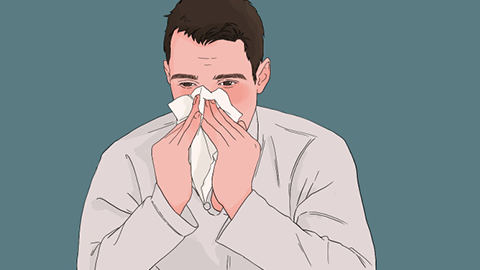What causes a sudden high fever of 39°C, and what should be done?
Sudden high fever of 39°C may be caused by heatstroke in hot environments, post-exercise stress, colds, acute tonsillitis, or acute gastroenteritis. It can be managed through cooling measures, rest and rehydration, and medication. If the high fever lasts more than 24 hours or is accompanied by confusion, severe vomiting, or other serious symptoms, prompt medical attention is necessary.

1. Heatstroke in high-temperature environments: Prolonged exposure to hot and humid conditions impairs the body's ability to dissipate heat, leading to heat accumulation and high fever, often accompanied by dizziness, fatigue, and hot skin. It is recommended to immediately move to a cool, well-ventilated area, remove excess clothing, apply cool wet towels to areas such as the forehead and armpits for physical cooling, and drink moderate amounts of lightly salted water to rehydrate.
2. Post-exercise stress: Intense physical activity over a short period significantly increases internal heat production, exceeding the body’s heat dissipation capacity and resulting in high fever, often with excessive sweating and muscle soreness. Exercise should be stopped immediately, and the individual should rest in place, drink room-temperature sports beverages to replenish electrolytes, and use fans to assist cooling. Avoid air conditioning drafts or cold showers immediately after exercise.
3. Cold: Viral or bacterial infection of the nasal passages, throat, or related areas triggers an inflammatory response causing high fever, along with nasal congestion, runny nose, and sore throat. Patients may take medications such as acetaminophen tablets, ibuprofen suspension, or Lianhua Qingwen capsules under medical guidance to relieve symptoms.
4. Acute tonsillitis: Bacterial infection causes acute inflammation of the tonsils, stimulating fever, redness, swelling, and increased pain during swallowing. Some individuals may develop pus-like secretions on the tonsil surface. It is recommended to use medications such as cefaclor capsules, Pudilan anti-inflammatory oral liquid, or compound borax mouthwash under medical supervision to alleviate symptoms.
5. Acute gastroenteritis: Consumption of contaminated or raw/cold food allows bacteria or viruses to invade the gastrointestinal tract, triggering inflammation and fever, often accompanied by abdominal pain, diarrhea, nausea, and vomiting. Treatment may include medications such as norfloxacin capsules, smectite powder, and oral rehydration salts III, taken as prescribed by a doctor.
Daily care should include maintaining good indoor ventilation and comfortable temperature and humidity levels; eating light, easily digestible meals while avoiding spicy and greasy foods; ensuring adequate rest and avoiding overexertion; and closely monitoring body temperature, keeping a record of fluctuations.







